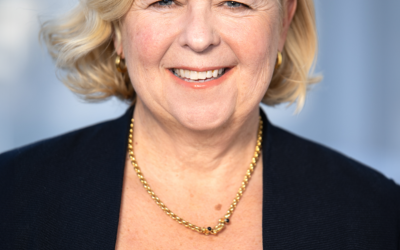We know that diversity, equity and inclusion needs span a vast range: executive coaching for your DEI leaders and DEI allies, coaching others on sensitive topics including DEI issues, and even training for your wider population on how your company approaches diversity, equity and inclusion. We have you covered on all those fronts, and crucially, we have a variety of DEI coaches who can deeply understand the needs and challenges of your employees around these issues.
Our diverse and expert coaches can support the leaders who are grappling with their own experience or those of other DEI employees, provide training in DEI issues for allies and others, or integrate topics of diversity and inclusion into the coaching of employees for whom this is a new conversation.
Challenging coaching calls for those with the compassion and expertise to handle to conversation.

Coaching for DEI Leaders and Allies
Expert, Certified, Diverse Coaches

We coach in the Diversity, Equity and Inclusion Space:
Senior leaders
DEI allies
Group programs that include DEI topics
Workshops on Equity and Inclusion
Keynotes on Ally-ship
Certified, experienced, diverse coaches
Our DEI Coaching Philosophy: Insight + Action = Results
Coach Selection Process
In order to deliver the most value to our clients and their companies, we believe that it’s critical that an executive chooses a coach whose style matches their personality—that’s why we encourage our clients to interview up to three of our coaches to guarantee the best fit.
Diverse, Experienced Coaches
Real Results
Convenience and Flexibility
The Arden Difference
The Power of the Arden Process

Selection
First things first: we set up an initial conversation to help determine the appropriate program for the executive, as well as set up interviews with the three coaches that are the best fit for their needs and goals. In this stage, we are looking to match the executive’s style with that of the coach to create a coaching relationship that delivers maximum results.

Alignment
At the start of each engagement, the coach, the executive, and their supervisor meet to determine the goals of the coaching. Because all of our executive coaching programs are results-driven, it’s critical to set appropriate goals and ensure that the executive, the supervisor, and the company can all realize the benefits of the coaching.

Assessment
When an executive enrolls in a program with the intent to change, measuring the ability and skill level at the outset is a critical first step in setting goals and building a plan to reach them. The coach will select from an array of assessments to select the tools best suited to help the executive gain insight into their unique style and potential areas for growth.

Work the Plan
With feedback from colleagues and a personalized development plan in place, the executive and the coach work through the strategy. They meet regularly to discuss challenges, best practices, and successes, with the coach helping the executive identify and understand their patterns, as well as focus on opportunities for improvement. At the midpoint of the partnership, we once again assess the executive’s progress through a meeting with their supervisor and course-correct, if needed. At the conclusion of the engagement, the executive, supervisor, and coach review the progress and identify any next steps necessary to continue the executive’s growth to ensure a long-term shift in behavior.
Executive Coaching and Leadership Blogs
How Habits & Routines Support Desired Change
By Claudia Beck, CPA, PCC One of the biggest challenges we face in life is making lasting change. Whether we want to lose weight, be less reactive, or simply get more exercise, changing our habits...
Leadership Coaching: The 7 Biggest Mistakes Leaders Make
Leadership coaching engagement with an executive coach helps clients clearly define their goals, explore mindset and assumptions in their everyday life and work, change behaviors, and strengthen...
Onboarding: Why Work with a Coach?
By Lyne Desormeaux, PSYD, MCC. Talent is moving fast these days, and many leaders are jumping ship and joining a new organization. If you are making such a change, there are five areas you may want...
Executive Coaching Tips: Do You Tend Toward Toxic Positivity?
Barb McAllister, MS, MCC As a professional coach for close to 20 years, I’ve attracted a number of clients with Toxic Positivity. What is this? I can best describe it as a tendency to put a positive...
Leadership Training: Why, What, and How to Get Started
“Our profitability, our values and corporate culture, and our future growth all demand we launch a leadership training program.” Linnea, the VP of Human Resources at a mid-sized technology firm in...
Why Am I Still Stuck? Overcoming Immunity to Change
By Andreas Schumacher, PhD, PCC Overcoming Immunity to Change If you have ever tried to engage differently with your team, your boss, or people in general, you are likely familiar with this...
What’s the Key Word for Leading in the New Normal? Belonging
By Hien DeYoung, PCC In a 2021 McKinsey quarterly report, research showed that 51% of employees quit their jobs due to a lack of belonging. With COVID quarantines behind us (hopefully) and the...
5 Signs it’s Time to Get Executive Coaching
Many people have benefitted when they get executive coaching — from high potential employees to seasoned CEOs. It’s a partnership. Executive coaches do not tell clients what to do; they help their...
Improve Leadership Results by Being Mindful, Selfless, and Compassionate
By Megan Broker, MA, PCC Improve Leadership Results In our hustle to measure performance, we have neglected ourselves. But there is measurable impact in being mindful, selfless, and compassionate in...









